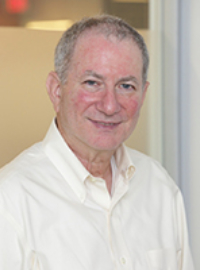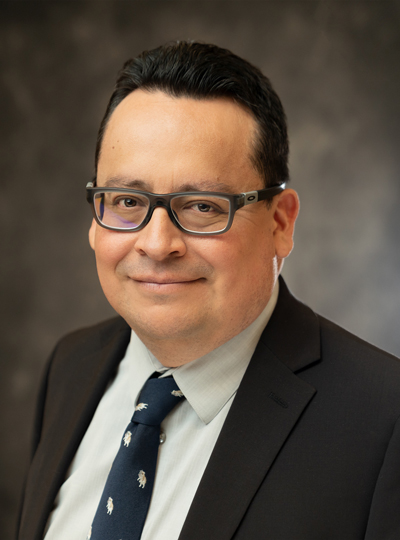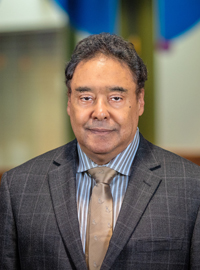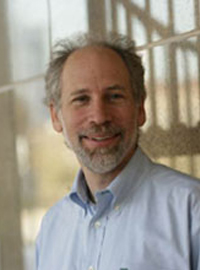Session five: Future Directions in Tobacco Modeling
- 12:05 PM — 12:10 PM: Welcoming Remarks (Day Three) with Rafael Meza, PhD and David Levy, PhD
- ❏ Watch this presentation
- 12:10 PM — 12:25 PM: “Population Modeling to Guide Public Health Research and Priorities: The NCI’s CISNET Experience” with Rocky Feuer, MS, PhD
- About this presenter and presentation +
 Rocky Feuer, MS, PhD
Rocky Feuer, MS, PhD- “Population Modeling to Guide Public Health Research and Priorities: The NCI’s CISNET Experience”
- The Cancer Intervention and Surveillance Modeling Network (CISNET) is an NCI sponsored collaborative consortium of modelers in breast, prostate, colorectal, lung, esophagus, and cervical cancers formed in 2000. The overall purpose of CISNET is to synthesize trial, epidemiologic & surveillance data using simulation modeling to guide public health research and priorities. The consortium helps address the formidable and growing gap between the rapid pace of innovation in cancer research and our ability to efficiently harness it to improve population health by providing a link between complex evidence & actionable public health strategies. In this talk we review the common underlying structure of CISNET models, and discuss CISNET’s approach to comparative modeling utilizing between three and six independently developed models per cancer site. We illustrate “CISNET in action” by discussing three examples of the consortium’s work: developing lung cancer screening guidelines in support of the US Preventive Services Task Force; optimizing benefits for a state colorectal cancer control program with a fixed budget; and evaluating a lower-cost alternative to upper endoscopy to screen for Barrett’s esophagus.
- Rocky Feuer, MS, PhD
- National Institutes of Health: Project Scientist, CISNET; Chief, Statistical Research & Applications Branch, NCI
- Profile: surveillance.cancer.gov
- Eric J. (Rocky) Feuer is a Branch Chief in the Surveillance Research Program (SRP) within the Division of Cancer Control and Population Sciences (DCCPS) at the National Cancer Institute. Dr. Feuer received his MS and PhD in biostatistics from the University of North Carolina at Chapel Hill. Prior to joining SRP, Dr. Feuer worked as the statistician for the cancer center at Mt. Sinai School of Medicine. Since 1999 he has been chief of the Statistical Research and Applications Branch. Dr. Feuer is also the NCI Project Scientist for the Cancer Intervention and Surveillance Modeling Network (CISNET), a collaborative group of investigators who use simulation modeling to guide public health research and priorities. He is the author of over 175 papers in the areas of cancer control modeling, statistical methods for the analysis, interpretation, and presentation of population-based cancer statistics; development of new cancer progress measures; and survival analysis. He is co-developer for the statistical methods and associated software for Joinpoint, DevCan, CanSurv, and CI*Rank. Dr. Feuer is a fellow of the American Statistical Association and was president of the Eastern North American Region (ENAR) of the International Biometric Society in 2008. He has won numerous NIH merit awards, and also been the recipient of two prestigious NIH Directors awards (for recognition in advancing statistical methods to interpret national cancer statistics, and, for leadership in coordinating the efforts of the CISNET consortium).
- 12:25 PM — 12:40 PM: “The CISNET Smoking History Generator and CAsToR microsimulation models. Past Applications, Current Developments, and Future Directions” with Rafael Meza, PhD
- ❏ Watch this presentation❏ Slides from this presentation
- About this presenter and presentation +
 Rafael Meza, PhD
Rafael Meza, PhD- “The CISNET Smoking History Generator and CAsToR microsimulation models. Past Applications, Current Developments, and Future Directions”
- The Smoking History Generator (SHG) is a microsimulator developed by the CISNET Lung Group that generates detailed individual smoking histories for the US population. The SHG uses as inputs smoking initiation, cessation, intensity probabilities and smoking-adjusted mortality rates by age, cohort and sex. A macro-level version of the SHG has also been developed to reduce computational time when appropriate. The SHG has been used to evaluate the impact of tobacco control policies and lung cancer prevention strategies in the US. The SHG provides the outcomes for the CISNET Tobacco Policy Tool (https://tobaccopolicyeffects.org/) which provides decision-makers and health professionals with estimates of the projected impact of specific tobacco control policies on smoking prevalence and smoking-attributable mortality in the US; smoke-free air laws, increasing cigarette taxes, raising the minimum age of legal access to tobacco (MLA), increasing the level of tobacco control program expenditures, and graphic health warnings on cigarette packs. The smoking histories from the SHG also serve as the main inputs for CISNET lung model simulations, which have been used to support the development of lung cancer screening strategies in the US and other countries.As part of CISNET's and CAsToR's current work, the SHG is being extended to simulate smoking histories for specific sociodemographic groups including versions by race/ethnicity, education level, income, and for each US state. The SHG is also being extended to jointly simulate histories of smoking and use of other tobacco products, such as ENDS, and to facilitate the modeling of other health outcomes, such as Chronic Obstructive Pulmonary Disease.In this talk, I will present a brief overview of the applications of the SHG in tobacco control and tobacco regulatory science, its current developments, and discuss possible future directions for the SHG and for simulation modeling in regulatory science in general.
- Rafael Meza, PhD
- University of Michigan: Professor, Epidemiology; Professor of Global Public Health; Co-Leader, Cancer Epidemiology and Prevention Program, UM Rogel Cancer Center; CAsToR Principal Investigator
- Profile: sph.umich.edu
- Dr. Meza is professor in the Department of Epidemiology at the University of Michigan. He received his BSc in applied mathematics from the Instituto Tecnologico Autonomo de Mexico (ITAM), and his PhD in applied mathematics from the University of Washington. After receiving his PhD, Dr. Meza completed a two-year postdoctoral fellowship at the Fred Hutchinson Cancer Research Center - and a three-year fellowship at the University of British Columbia Centre for Disease Control. Dr. Meza's research interests lie at the interface of epidemiology, biostatistics and biomathematics. In particular, he is interested in cancer risk assessment and the analysis of cancer epidemiology data using mechanistic models of carcinogenesis. He is also interested in the mathematical modeling of chronic and infectious disease dynamics and its applications in disease prevention public health policy design. Dr. Meza is Coordinating Principal Investigator of the Cancer Intervention and Surveillance Modeling Network (CISNET) lung group, core member and co-leader of the Cancer Epidemiology and Prevention Program at the University of Michigan Rogel Cancer Center. He is also Honorary Professor at the Mexico National Institute of Public Health (INSP), and a member of Mexico’s National System of Investigators (SNI Level II). Currently, Dr. Meza is developing models to evaluate the impact of screening and smoking cessation on lung cancer risk. Additional projects include the development of methodologies to investigate the effects of infectious disease dynamics on the risk of cancers with infectious disease etiology, particularly HPV-related cancers, assessing the acceptability of HPV screening in indigenous and minority populations in Latin America, and modeling the impact of policies on tobacco use.
- 12:40 PM — 12:55 PM: “Evaluating Potential Future Harm of Menthol Cigarettes” with David Mendez, PhD
- ❏ Watch this presentation❏ Slides from this presentation
- About this presenter and presentation +
 David Mendez, PhD
David Mendez, PhD- “Evaluating Potential Future Harm of Menthol Cigarettes”
- This talk will discuss how we used simulation analysis to evaluate the potential harm that menthol cigarettes could cause if they remain in the market.
- David Mendez, PhD
- University of Michigan: Associate Professor
- Dr. David Mendez is an Associate Professor in the Department of Health Management and Policy at the University of Michigan. His research focuses on modeling trends of cigarette smoking cessation or switching to e-cigarettes. Dr. Mendez’s research also investigates the financial implications of these trends, with specific focus on tobacco control in the United States.
- 12:55 PM — 1:10 PM: “Modeling a Menthol Cigarette Ban and Flavor Restrictions on ENDS” with David Levy, PhD
- ❏ Watch this presentation❏ Slides from this presentation
- About this presenter and presentation +
 David Levy, PhD
David Levy, PhD- “Modeling a Menthol Cigarette Ban and Flavor Restrictions on ENDS”
- We first present the results of a simulation model that examines the impact of a ban on menthol in cigarettes and cigars. This model relies on the results of an expert elicitation. The results are particularly sensitive to assumptions regarding the likelihood of smokers switching to ENDS. Extensions of that analysis are currently being conducted to consider the implications of applying flavors restrictions to ENDS. We discuss issues related to that model, and more generally issues potentially important to modeling initiation, cessation and product switching in the current nicotine delivery environment. These include decisions regarding products to be considered, defining regular dual and exclusive use, variations across different subpopulations (e.g., by age, SES, race and mental health), discontinuities in use transitions (e.g., due to major changes in technology or surrounding events, such as Covid) and the changing role of industry.
- David Levy, PhD
- Georgetown University: Professor, Georgetown University Medical Center; CAsToR Principal Investigator
- Profile: georgetown.edu
- Dr. David Levy is PI for CAsToR at Georgetown University and co-Lead of Projects 1 - 3, and the Research Assessment and Input Development Core. He received his PhD in Economics from UCLA (USA), and is currently a Professor of Oncology at Georgetown University. He has published over 250 articles, in renowned journals such as the American Economic Review, BMJ, AJPH, JAMA, The Lancet, Tobacco Control, and PLOS Medicine. He has been principal investigator of grants from the CDC, WHO, the National Cancer Institute, and Bloomberg/Gates Foundation. Dr. Levy currently oversees the design and development of the SimSmoke tobacco policy simulation model, for which he has developed models for over 40 countries covering 85% of the world’s population, and has recently developed models of smokeless tobacco and e-cigarette use. In addition to being a principal investigator on the TCORS grant, he is currently a principal investor on a National Cancer Institute grant with the InternationalTobaccoControl Policy Evaluation Project (theITCProject) in which he has developed models of e-cigarette use for Canada, England and France; and is a principal investigator on the National Cancer Institute CISNET Lung Group. He has recently published articles providing a public health framework for evaluating e-cigarettes and showing the potential benefits of e-cigarettes, as well as papers on the cigarette and e-cigarette markets.
Breakout Sessions
- 1:10 PM — 1:15 PM: Transition to Breakout Rooms
- 1:15 PM — 1:30 PM: Break
- 1:30 PM — 2:15 PM: Breakout Session Discussions
-
• Breakout Room 1: TRS Modeling Priorities; Facilitator: David Levy
• Breakout Room 2: Training; Facilitator: David Mendez
• Breakout Room 3: Timely Translation; Facilitator: Rafael Meza
• Breakout Room 4: Model Accessibility and Collaboration; Facilitator: Jamie Tam
• Breakout Room 5: Industry; Facilitator: Cliff Douglas - 2:15 PM — 2:20 PM: Transition out of Breakout Rooms
- 2:20 PM — 2:50 PM: Breakout Reports
- ❏ Watch this presentation
- 2:50 PM — 3:20 PM: Breakout Discussions
- ❏ Watch this presentation
- 3:20 PM — 3:30 PM: Break
Session six: Formulating a Plan to Move Forward
- 3:30 PM — 4:15 PM: Panel Discussion with David B. Abrams, PhD, Benjamin Apelberg, PhD, MHS, Kenneth Cummings, PhD, MPH, and Dorothy Hatsukami, PhD
- ❏ Watch this presentation
- 4:15 PM — 4:30 PM: Closing Remarks with Rafael Meza, PhD and David Levy, PhD